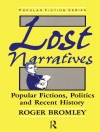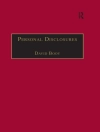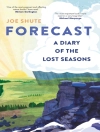In essays that examine particular non-canonical works and writers in their wider cultural context, this volume ‘repopulates’ the German Enlightenment.
German literature and thought flourished in the eighteenth century, when a culture considered a European backwater came to assert worldwide significance. This was an age in which repeated attempts to reform German literary and philosophical culture were made – often only to be overtaken within a few decades. It ushered in generations of exceptionally gifted poets and thinkers including Klopstock, Lessing, Goethe, Kant, and Schiller, whose names still dominate our understanding of the German Enlightenment. Yet the period also brought with it new means of accessing and disseminating culture and a rapid increase in cultural production. The leading lights of eighteenth-century German culture operated against the backdrop of a yet more diverse and vivid cast of literary and philosophical figures since consigned to the second tier of German culture. Through essays that examine particular non-canonical works and writers in their wider cultural context, this collection repopulates the German Enlightenment with these largely forgotten movements, writers, and literary circles. It offers new insights into the development of genres such as thenovel, the fable, and the historical drama, and assesses the dynamics that led to individual authors, circles, and schools of thought being left behind in their time and passed over or inadequately understood to this day.
Contributors: Johannes Birgfeld, Stephanie Blum, Julia Bohnengel, Kristin Eichhorn, Sarah Vandegrift Eldridge, Jonathan Blake Fine, J. C. Lees, Leonard von Morzé, Ellen Pilsworth, Joanna Raisbeck, Ritchie Robertson, Michael Wood.
Michael Wood is British Academy Postdoctoral Fellow in German at the University of Edinburgh. Johannes Birgfeld teaches Modern German Literature at the University of the Saarland.
Tabella dei contenuti
Introduction: Literary Historiography, the Canon, and the Rest – Johannes Birgfeld and Michael Wood
PART 1. POETRY
Curing both Body and Soul. The Physician as Poet in the Works of Daniel Wilhelm Triller – Kristin Eichhorn
Daniel Stoppe’s Fables: A ‘Second-Tier’ Version of the Genre in the Early Enlightenment? – Stephanie Blum
‘Nicht unsrer Lesewelt, und nicht der Ewigkeit’: Late Style in Gleim’s
Zeit- and
Sinngedichte (1792-1803) – Ellen Pilsworth
PART 2. THE NOVEL
Difficulties of a Statesman: Johann Michael von Loen and
Der redliche Mann am Hofe – Ritchie Robertson
Expanding the Eighteenth-Century Novel between England and Germany: Sentiment, Experience, and the Self – Sarah Vandegrift Eldridge
An Unoriginal Modernity: The Novelist-Translator Friedrich von Oertel – Leonard von Morze
PART 3. DRAMA AND THEATER
Theater for an Urban Audience: Adam Gottfried Uhlichs
Der Jungfernstieg and
Der Götterkrieg – Johannes Birgfeld
Stepping Out of
Götz’s Shadow: Jacob Maier, the
Ritterstück, and the Historical Drama – Michael Wood
‘You can go to hell with your Chinese bridge’: August von Kotzebue’s Most Successful Play
Menschenhaß und Reue and the European Garden Revolution – Julia Bohnengel
PART 4. PHILOSOPHY AND CRITICISM
A Troll Emerges: The Beginning of August Friedrich Cranz’s Career as a Provocateur – Jonathan Blake Fine
Second-Tier Writing in Catholic Germany: Eulogius Schneider (1756-1794) as Professor of Aesthetics and Poet – J. C. Lees
Performativity and ‘Poetic’ Epistemology: Ludwig Gotthard Kosegarten’s Response to Moses Mendelssohn’s Aesthetics – Joanna Raisbeck
Circa l’autore
SARAH VANDEGRIFT ELDRIDGE is an Associate Professor of German at the University of Tennessee, Knoxville, TN












